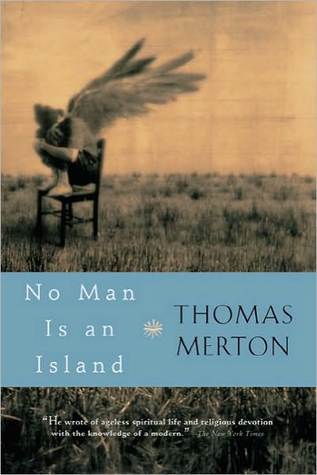More on this book
Community
Kindle Notes & Highlights
My successes are not my own. The way to them was prepared by others. The fruit of my labors is not my own: for I am preparing the way for the achievements of another. Nor are my failures my own. They may spring from the failure of another, but they are also compensated for by another’s achievement. Therefore the meaning of my life is not to be looked for merely in the sum total of my own achievements. It is seen only in the complete integration of my achievements and failures with the achievements and failures of my own generation, and society, and time.
Upon our hope, therefore, depends the liberty of the whole universe. Because our hope is the pledge of a new heaven and a new earth, in which all things will be what they were meant to be. They will rise, together with us, in Christ. The beasts and the trees will one day share with us a new creation and we will see them as God sees them and know that they are very good.
all sin flows from pride that refuses to love.
Just as love does not find its fulfillment merely in loving blindly, so freedom wastes away when it merely “acts freely” without any purpose. An act without purpose lacks something of the perfection of freedom, because freedom is more than a matter of aimless choice. It is not enough to affirm my liberty by choosing “something.” I must use and develop my freedom by choosing something good.
of Christianity, for it is the distinction between the letter, which kills, and the spirit, which gives life.
The Lord did not create suffering. Pain and death came into the world with the fall of man. But after man had chosen suffering in preference to the joys of union with God, the Lord turned suffering itself into a way by which man could come to the perfect knowledge of God.
Pain and sufferring existed with at least the higher animals and our hominin ancestors prior to us modern humans.
Lacking this detachment, we are subject to a thousand fears corresponding to our thousand anxious desires. Everything we love is uncertain: when we are seeking it, we fear we may not get it. When we have obtained it, we fear even more that it may be lost. Every threat to our security turns our work into agitation. Even a word, even the imagined thought we place in the mind of another, suspecting him of suspecting us—these are enough to turn our day into a millrace of confusion and anxiety and haste and who knows what other worse things besides!
A man who is not at peace with himself necessarily projects his interior fighting into the society of those he lives with, and spreads a contagion of conflict all around him. Even when he tries to do good to others his efforts are hopeless, since he does not know how to do good to himself. In moments of wildest idealism he may take it into his head to make other people happy: and in doing so he will overwhelm them with his own unhappiness.
for even those who have abandoned their religion often retain a high and exacting idea of religious perfection.
Tradition really teaches us to live and shows us how to take full responsibility for our own lives. Thus tradition is often flatly opposed to what is ordinary, to what is mere routine. But convention, which is a mere repetition of familiar routines, follows the line of least resistance. One goes through an act, without trying
Tradition nourishes the life of the spirit; convention merely disguises its interior decay.
Finally, tradition is creative. Always original, it always opens out new horizons for an old journey. Convention, on the other hand, is completely unoriginal. It is slavish imitation. It is closed in upon itself and leads to complete sterility.
Tradition teaches us how to love, because it develops and expands our powers, and shows us how to give ourselves to the world in which we live, in return for all that we have received from ...
This highlight has been truncated due to consecutive passage length restrictions.
But the whole world has learned to deride veracity or to ignore it. Half the civilized world makes a living by telling lies. Advertising, propaganda, and all the other forms of publicity that have taken the place of truth have taught men to take it for granted that they can tell other people whatever they like provided that it sounds plausible and evokes some kind of shallow emotional response.
Americans have always felt that they were protected against the advertising business by their own sophistication. If we only knew how naive our sophistication really is! It protects us against nothing. We love the things we pretend to laugh at. We would rather buy a bad toothpaste that is well advertised than a good one that is not advertised at all. Most Americans wouldn’t be seen dead in a car their neighbors had never heard of.
Why do we get angry about what we believe? Because we do not really believe it. Or else what we pretend to be defending as the “truth” is really our own self-esteem.


